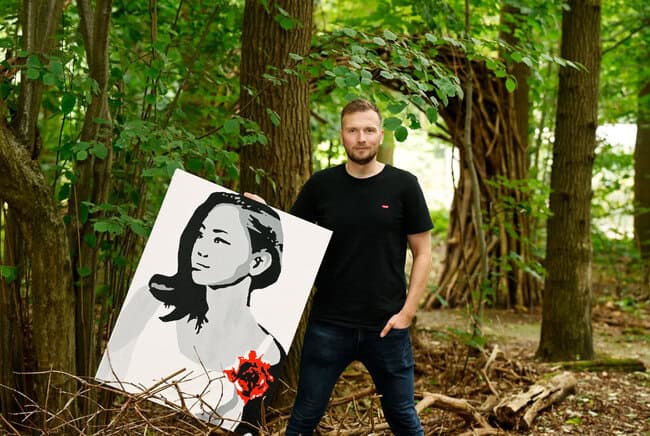
For a Cursor Special about the explorer, Monique van de Ven and Tom Jeltes interviewed eight pioneers of the Eindhoven University of Technology. Today: Professor of Smart Architectural Technologies Masi Mohammadi. “In 2040, technology is a modern servant for all of us.” Pictures by Bart van Overbeeke.
We publish one TU/e-Pioneer-story every day – Read the complete series here
Living in a robot that sympathizes with you – That’s what Masi Mohammadi wants to call her ‘Empathic living environment’ (the title of her inaugural speech). The Professor of Smart Architectural Technologies wants to make life easier and more enjoyable for people in their own living environment by means of smart technology that they know, understand, feel and respond to.
What question would you want to get asked?
“How I see 2040 and how we live by then. I think that by then, we will have made complete peace with the way in which we can use technology in our living environment. Nowadays, we are still anxiously looking at some technologies – especially if they affect our daily patterns. They are often only half solutions nowadays and the infrastructure around them, for example, is not yet in order. That calls for resistance. In 2040, technology will be a modern servant for all of us, integrated in our immediate surroundings and fully embraced by the care and construction sector. All we have to do is optimise it.”
What is the source of your pioneering existence?
“I’m constantly inspired by beautiful, spiritually rich people; of whom we have more than enough within the TU/e alone. Our ordinary life, our daily problems, and nature also inspire me. I also have a broad background in three studies – cartography, civil engineering, and architecture. This combination of hard and soft, of context and object, has taught me that the truth has multiple faces and that solutions really lie at that intersection of multiple directions.”
What part of your character makes you a pioneer?
“I’m always interested in what others want to say, I look for new collaborations. And I am not so afraid – innovation often lies in daring to break the existing rules and thinking patterns, including those of science. Being a pioneer is difficult, but I don’t think that there is a pioneer on earth who isn’t difficult. Pioneers are often weird birds, black sheep, strange ducks. How do I deal with this? I accept it, but also fight for what I believe in. Sometimes that’s difficult, you would rather blend into society – but I’ve long since put that out of my mind.”
How do you relax; how do you take rest?
“Above all, I draw energy from what I do. Science is creating, creating a thought, an opportunity or, more concretely, a building. That gives so much satisfaction, that is just a kind of doping. Of course, there are times when you get away from it for a while. I like to watch beautiful films, I sometimes dance, like to read poetry or go walking – but I really have to free up time for that. That I don’t do this too often means for me that I don’t seem to give it the priority, and therefore have a little less need for it.”
When would you call your life a success?
My loved ones are satisfied with me, so I feel successful on an emotional level. Furthermore, I never really thought about how people see me or how they remember me later. I do things out of an intrinsic motivation because they make me feel good and richer and contribute to society. What I want to do in any case, and what I want to do as well, is building an empathic house in which we live in a pleasant way and can grow old. That is my goal for the time being. Whether people will like it or not in the future, whether I have made a difference with it in the longer term or whether it will have caused a small movement in society, we will find out later.”
This interview was previously published in the Cursor special about ‘The Explorer‘.









